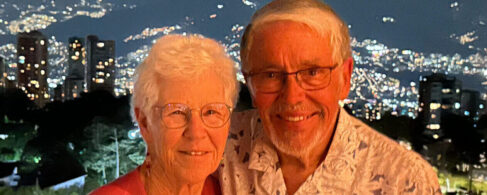Education:
They attend Primary School Kindergarten – fourth grade, Secondary School is fifth – eight grade and then High School is ninth and tenth. All of this is free in public schools. At the end of this, based on their achievement, they can go on to University. They pay for this and certain professions have to giveback service for three to five years. The lawyer, doctors, nurses, and teachers all need to give back. They still pay for the education.
Health care:
The doctors, nurses are free but the medicines are not readily available. The care is not the best so if they can afford it they take the family member somewhere else. Daniel took his mother to Thailand for medical care. I think they can purchase medicines privately.
Religion:
Buddhism is the major religion but all faiths are practiced in Myanmar. In all of the towns there are Buddhist temples, Christian churches, Muslim mosques. They have not mentioned Jewish and Hindu faiths. With most being Buddhist the country feels very safe in all the areas we were in. Our guide is very comfortable leaving his bag with lots of money on a chair and walking away, something we would not do in the US.
There are five tenants that they practice in their Buddhist faith:
Do not lie, steal, kill, damage the family or drink alcohol to excess.
They believe they should do good things to receive “merits”. These will help them to have a better life in their next life. They believe that their soul lives on, they return for another life and they carry their merits with them. They do both cremation and burial because the soul has already left the body. At the temple they will ring a bell to announce a “merit”.
Old age:
I think one of the guides said the average life span was mid 60’s. As is true of many Asian countries the family lives together so the children are caring for their parents. There is no such thing as Social Security so Daniel said it is important to save up as you go.
Agriculture:
There is a lot of agriculture in Myanmar. They grow a lot of things including peanuts, soy, mangos, watermelons, honeydews, lentils andsaffron. We have had cooked vegetables at every meal and it has all been very tasty.
Marriage:
Fifty percent are arranged marriages, for all others the parents must agree or they can not get married. If the parents do not agree they just wait. Later the parents may agree to it because she is getting too old. Girls live with their parents until marriage and they cannot be out later than eight in the evening. Daniel says there are not many bars, disco’s so not a lot of evening activity. There is no sex until marriage so if a woman is widowed or divorced it is difficult for her to remarry. The divorce rate is only 2% and only if the woman is being beaten or the parents agree; probably the grandkids would be affected. The groom’s family pays for weddings.
The people are very respectful of each other, they take care of where the live as best they can and the children and well cared for. We all felt very safe being out in the evening or any place on our own. There are135 ethnic groups in Myanmar so a wide variety of people and cultures.
Toilettes
They have been very clean, western style seats available and usually free. I went yesterday to a public toilette that I paid $0.30 for and it was still clean. Being on at OAT tour they of course take us to the better toilettes but yesterday’s was not. In the bathrooms they have a faucet that has what we have as a kitchen sprayer. One of my fellow travelers says you rinse off with it. It does work nicely.
